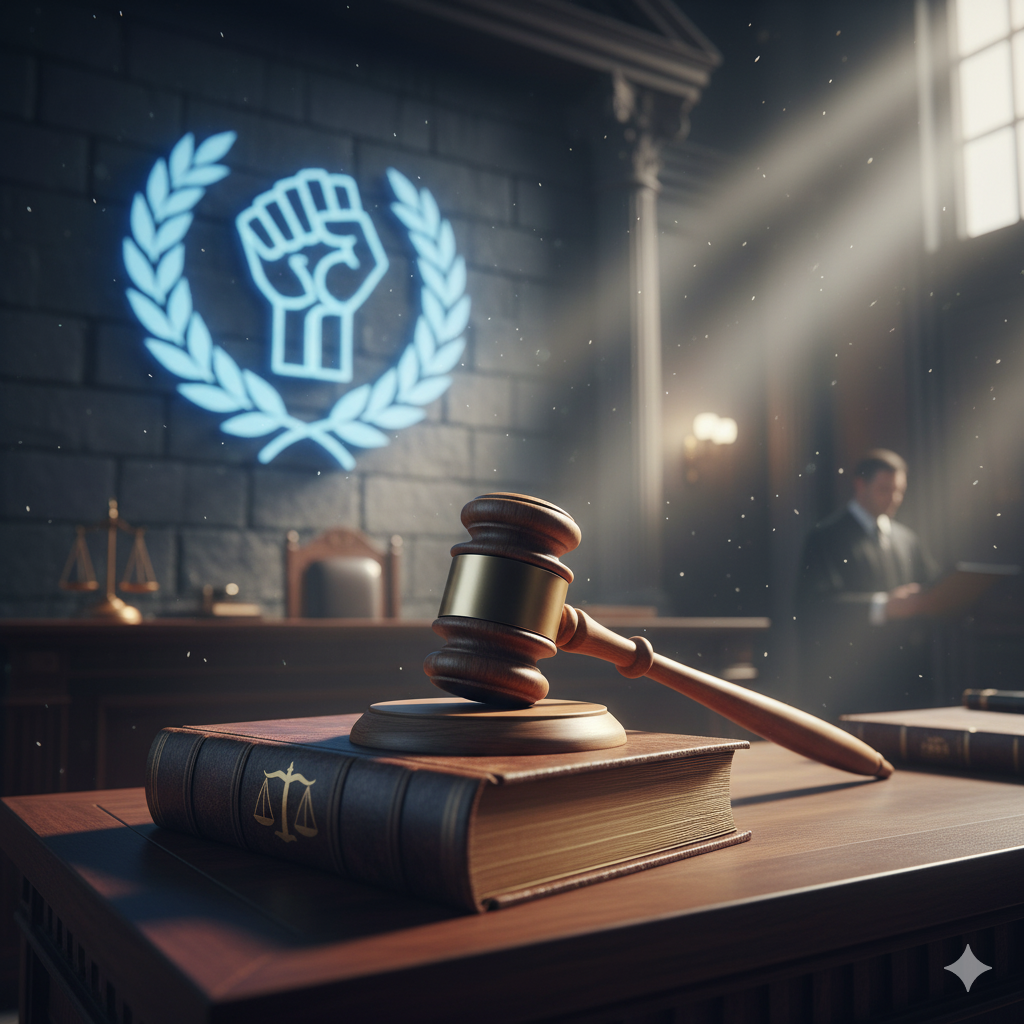Legal Power

- Legal Power the right and power to interpret and apply the law.
- The concept of legal power (often called legal competence) is important in the law since, with regard to actions having legal effect, the “exercise of legal power” delimits those actions for which manifestation of intention to achieve a legal effect is essential for the effect to ensue. The paper proposes a definition that captures this feature of legal power and marks it off from “direct effect,” as well as from permissibility and practical ability to achieve the legal effect. This analysis of power is limited to the “immediate” legal power of a physical person characterized by the power-holder achieving a legal result by the power-holder’s own behavior (not by representatives acting on behalf of the power-holder). It is argued that in the literature on power the concept of legal power is frequently construed in such a way that it becomes either too broad or too narrow.
- Under the rule of law, power is the sovereign will of the people expressed as non-arbitrary laws that—theoretically, if not perfectly in practice— apply to everyone equally. This sovereign power also limits the exercise of governmental power so that it does not exceed the authority granted to it by the people.
- There are two parts to this that are downright revolutionary. The first is the fact that the people are sovereign—not some divine-right monarch, or some combination of kings, lords, and commons. The people set the terms of how they will be governed in written constitutions. The second is that the people limit the exercise of power by their government through laws that are not capricious or arbitrary, and that apply uniformly, even to those leaders and representatives who enact and enforce the people’s law. Together these two innovations in political science provide a profound blueprint for self-government: the people are in charge, they are the fountain of authority from which the rules are made, and the rules apply to everyone.
- The United States of America did not directly import this particular blueprint for power from Great Britain, though British constitutionalism was indispensable to our thinking on the matter. King George III inherited a monarchy limited by constitutional revolution, the Glorious Revolution of 1688/89, which shifted the locus of sovereignty in Britain: the king was no longer the divine-right, absolute, arbitrary, fountain of law and justice of the past, but instead, Parliament—the House of Commons and the House of Lords—when working in concert with the king, constituted the ultimate authority in Great Britain and its empire. This revolution in constitutionalism made us North-American colonists incredibly proud to be liberty-loving Englishmen and women, until, of course, taxes, declarations of parliamentary will, quartering of troops in private homes, and tea parties changed our minds.
- But if we did not have the benefit of the legacy of the Glorious Revolution—locating sovereignty in a body representing all the people in the realm, and linking that to Parliament’s lawmaking function—we would not have been as well situated to make the intellectual leap to we, the people, are sovereign. It wasn’t easy to put this popular sovereignty into practice; it took a great deal of experimenting during the 1770s and 1780s to figure out just how to implement this quite radical notion. And yet, the combination of historical research and hindsight, paired with innovative experimentation across the states, the framers of both state constitutions and the US Constitution managed to create and execute an enduring framework whereby we, the people, are in charge.
- And thus our American system: the people are sovereign—not your president, your member of Congress, your governor, or your state representative. You—we—the people wield the ultimate power to make law, to make the rules that are meant to apply to all, equally, and to ensure that we all live under, not above or apart from, those rules. This innovation in political thought, and its implementation in constitutional government, is an American marvel, and in its profundity, is truly extraordinary.
- A legal power refers to the ability of a legal subject to achieve an intended legal effect.A legal power is attributed by positive law.
- One can have a legal power to attribute legal powers.
- All legal powers are both constituted and constrained by positive law.
- The written or unwritten Constitution of a state attributes legal powers to legislate, administrate and adjudicate, thus calling them into existence (the constitution ‘constitutes’ these powers), and qualifying them (the constitution also ‘regulates’ these powers, e.g. by attributing them to countervailing powers).
- In the case of public law legal powers are constrained by the legality principle.
- In the case of private law legal powers are constrained by the reasonableness principle (or equity in common law jurisdictions).
- The attribution of legal power plays out in all domains of law:
- Private law, for instance, attributes to the owner of a legal good the legal power to transfer related property rights, provided specific conditions have been fulfilled.
- Criminal law, for instance, attributes to the court the legal power to impose specified (maximum) punishments, provided the conditions of a specific criminal offence have been fulfilled.
- Administrative law, for instance, attributes to legal subjects the legal power to object to decisions made by public administration, provided specific conditions apply.International law, for instance, attributes to states the legal power to conclude treaties, subject to the constraints imposed by the sources of international law.
- The term power of attorney (POA) refers to a legal authorization that gives a designated person the power to act for someone else. As such, a POA gives the agent or attorney-in-fact the authority to act on behalf of the principal. The agent may be given broad or limited authority to make decisions about the principal’s property, finances, investments, or medical care.
- There are two main types of POAs, financial and health care—both of which provide the attorney-in-fact with general or limited powers.A power of attorney is a legal document that gives one person the power to act for another person.The person who receives the authority is the agent or attorney-in-fact while the subject of the POA is the principal.
- The agent can have broad legal authority or limited authority to make decisions about the principal’s property, finances, or medical care.
- The POA is often used when the principal can’t be present to sign necessary legal documents for a financial transaction.A durable power of attorney remains in effect if the principal becomes ill or disabled and cannot act personally.A power of attorney is a legal document that involves the agent or attorney-in-fact, and the principal. It is used in the event of a principal’s temporary or permanent illness or disability, or when they can’t sign necessary documents.
- The principal must choose a POA who they trust to handle their affairs for them.1 Documents can be obtained online or through a lawyer. Both parties must sign the paperwork. A third party is usually required to witness it.Most POA documents authorize the agent to represent the principal in all property and financial matters as long as the principal’s mental state of mind is good.
- If the principal becomes incapable of making decisions for themselves, the agreement automatically ends.A power of attorney can end for several reasons, such as when the principal revokes the agreement or dies, when a court invalidates it, or when the agent can no longer carry out the responsibilities outlined. In the case of a married couple, the authorization may be invalidated if the principal and the agent divorce.
- There are many types of powers of attorney. A durable POA takes effect when the document is signed while a springing power of attorney comes into effect only if and when the principal becomes incapacitated. A power of attorney may also be limited to medical matters, enabling the agent to make crucial decisions on behalf of an incapacitated person.
- A power of attorney for use in case of need might be considered by anyone planning for unexpected incapacitation or long-term care, no matter how remote such events appear to be. It might also be needed for someone expecting to be away from home and difficult to reach for some time
❖ Types of Powers of Attorney:
The two key types of POAs are financial and health care. We outline some of the main differences between these two and highlight some of the main types of financial POAs.
❖ Health Care Power of Attorney (HCPOA)
The principal can sign a durable power of attorney for health care, or health care POA (HCPOA), if they want an agent to have the power to make health-related decisions. This document also called a health care proxy, outlines the principal’s consent to give the agent POA privileges in the event of an unfortunate medical condition.
❖ American Bar Association
The POA for health care is legally bound to oversee medical care decisions on behalf of the principal. As such, it kicks in when the principal can no longer make health-related decisions on their own.
❖ Financial Power of Attorney
The financial POA is a document that allows an agent to manage the business and financial affairs of the principal, such as signing checks, filing tax returns, mailing and depositing Social Security checks, and managing investment accounts when and if the latter becomes unable to understand or make decisions. The agent must carry out the principal’s wishes to the best of their ability, at least to the extent of what the agreement spells out as the agent’s responsibility. A financial POA gives that individual a wide range of power over one’s bank account, including the ability to make deposits and withdrawals, sign checks, and make or change beneficiary designations.
Financial POAs can be divided up into several different categories. These are the general power POA, limited power POA, and durable POA.
❖ General Power POA
This POA allows the agent to act on behalf of the principal in any matters, as allowed by state laws. The agent under such an agreement may be authorized to handle bank accounts, sign checks, sell property, manage assets, and file taxes for the principal.

World Culture and Environment Protection Commission is an inter government organization. We are here to protect the culture and environment with the help of magical human being.


